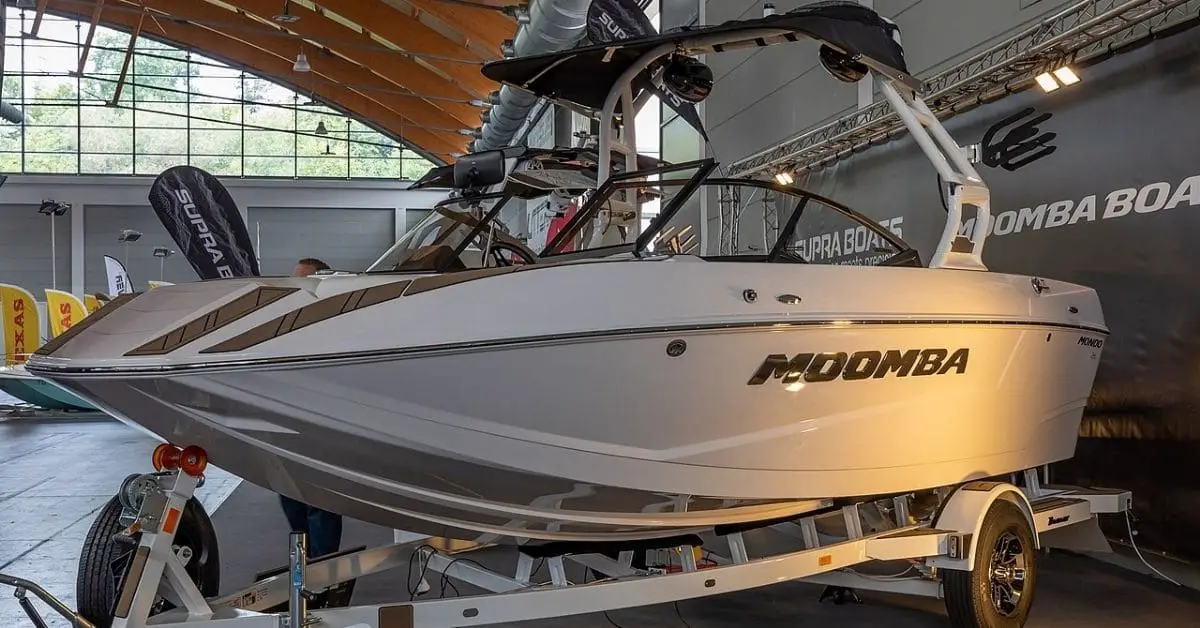Depreciation is something all boaters should take into account especially if you’re buying something new. There are many different kinds and brands of boats, so not every boat’s depreciation curve is the same, but this article will tell you how much depreciation you should expect.
Here’s on average how much boats depreciate: All boats are different but expect them to lose about 10-15% of their value in the first year of use, 20-30% by the fifth, and 30-40% by the tenth year of use. After the tenth year, depreciation will steadily continue until a sharp decline when the engine breaks down.
Once a gas boat engine breaks down or receives over 1,250 hours, the boat will drop significantly in value. Diesel engines will last longer. When boats get old, the engine makes up for the majority of its worth. So, major depreciation due to an old engine will occur around the 13-17 year mark.
Here is some general information you should know about boat depreciation:
- Boats depreciate less than cars do in the first 10-15 years. Because of how much smaller the boat market is when compared to cars and you don’t use your boat nearly as much as you do a car, boats depreciate much slower than cars do.
- Popular styles of boats such as fishing boats, ski/wake boats, center consoles, and pontoon boats generally depreciate less than other styles of boats such as yachts. This is because there is a much larger market for these boats, and when the demand is higher, the selling price is as well.
- Avoiding damages such as UV damage from the sun can keep your boat from depreciating much. This is why putting a cover on is so important. If you’ve lost your cover, there are plenty of ones available on Amazon such as this one here.
- A Boat engine generally holds more value than the boat itself once a boat is over 7-12 years old. This is especially true with smaller boats such as bass boats and ski boats. Larger boats such as yachts follow this rule too, but they usually hold more value than the engine for 12-20 years and not 7-12 years.
- Diesel engines generally last longer than gas engines; therefore, very old diesel boats hold their value better than very old gas boats.
- For very small boats (under 18 feet) depreciation curves are dictated almost solely by the engine condition. These small boats aren’t very expensive, but their engines are. Expect them to have a similar depreciation curve to the red line below, but have less depreciation in the first few years and more at the end.
Boat depreciation curve
This is a general curve, but your boat could be drastically different than this depending mostly on the brand, how many hours you’ve put on it, and how well you’ve taken care of it. This graph assumes you put 50-150 hours per year on your boat.
The reason smaller boats tend to resell for more during their first 14-18 years is that there is a larger demand for them. However, their engines usually break down faster than larger boats making them sharply depreciate at around the 14-year mark.
Larger boats also tend to be worth higher as they get old because there is more money in the boat than the engine. A high percentage of the value of a small boat is in the engine, a much higher percentage than in larger boats. So when the engine gets old, a smaller boat will lose much more total value than a larger boat.
What boat brands depreciate the least?
The more popular and respected brands will generally always depreciate the least. Here is a list of boat brands that depreciate the least:
- Boston Whaler
- Grady-White
- Viking Yachts
- Mastercraft
- Yamaha
- Bertram
- Sea Ray
- Tracker
- Lund
As long as your boat isn’t a complete off-brand, it won’t depreciate much more than the averages I’ve explained above. But if you have a boat from one of these brands (especially Boston-whaler and Grady-White) expect them to depreciate less (significantly less if they are properly taken care of).
What types of boats depreciate the least?
As well as with brands, some specific boat types depreciate less than others. Below I’ve listed all the different boat types, number one being the boat type that depreciates the least and number 9 being the type that depreciates the most.
- yachts
- sailboats
- catamarans
- cabin cruisers
- center consoles
- trawlers
- cuddy cabins
- ski boats
- fishing boats
How do you help keep your boat from depreciating?
The best thing you can do to keep your boat from depreciating a lot is to store it indoors in the offseason and always cover it from the sun in the summer. UV rays from the sun can greatly damage your paint and seats which would cause the boat to resell for less.
Waxing your boat at least once every season can also help keep harmful UV rays from damaging your boat. There are boat detailers that could do this for you, or you can watch this YouTube vid to learn how to do it yourself.
You also want to keep your seats safe by not letting people step on them and not washing them with a harsh chemical. Stick with only soap and water when washing the seats.
Should you buy a new or used boat?
New boats can be ridiculously expensive and will most likely lose a lot of their value due to depreciation. Because of this, I would recommend getting a slightly used boat (3 to 10 years old) so you don’t lose as much money to depreciation.
Obviously, older boats also come with some expenses that new ones may not have as much of such as engine maintenance. This is why it’s important to make sure the engine(s) run smooth and maybe even get a mechanic to quickly check them out for you before you make a purchase.
Also look for sun damage, seat damage, and any other sort of exterior damage that might make the boat worth less money. You don’t want to buy a damaged boat at full price.
If you are wondering how much boat you can afford, check out this article I wrote here that tells you exactly that.
How do you find out how much a used boat is worth?
If you find a good used boat, but you don’t really know how much you should be paying for it, check out this website here. You can input almost any boat model on the market and they will give you a pretty good estimate of how much it’s worth.
Obviously, there are other factors that you need to take into account such as how good of condition the boat is in, but it gives a good baseline so you don’t get ripped off.
Other expenses that you should take into account
Besides just depreciation, there are many other expenses you need to consider when purchasing a boat. Some of these include boat insurance ($200-$500 per year), Storage ($1,000 to 2,000 per year), maintenance ($500-$8,000 per year), plus many smaller things such as equipment and accessories.
Never go into buying a boat thinking of it as any kind of investment. Boats are almost always a liability that will cost you money year after year, but there are some things that you can do to keep them from losing a lot of their value as I’ve explained above.
How to find out how much boat you can afford?
Most people can afford a boat that has a monthly payment that is 10% or less than their monthly income. However, if you already have many other debts such as a high mortgage/rent, high auto loan, and child support payments, you may not be able to afford that much boat.
If you want to know exactly how much you can afford, I created a simple calculator that you can use that calculates it for you. To check it out, click on this link here.
- What Is The Cheapest Way To Store A Boat? - February 28, 2023
- Do Boats Need Bottom Paint? (Uncovering the Truth) - February 2, 2023
- How Much Is Bass Boat Insurance? (Real Quotes) - January 18, 2023

